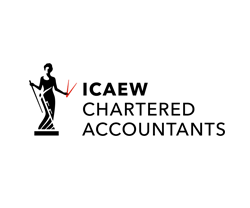How to Pay Tax When You Don’t Pay Tax

From 6 April 2016, the government is introducing new savings and dividend allowances meaning that the majority of passive investors will not pay tax on the income earned on their investments. This is good news but there are quirks that can lead to nasty tax surprises if you are not careful.
The Dividend Allowance
The taxation of dividends is experiencing a radical overhaul from April 2016. The first £5,000 of dividends received in a tax year will be completely tax free, regardless of any other income being received.
This is obviously great news for investors with a modest portfolio, especially higher rate and additional rate taxpayers who will see tax savings of up to £1,625 and £1,875 respectively.
The new legislation will, however, remove the tax credit from dividends received. The tax credit is a notional figure of tax that is deemed to be paid by the recipient of the dividend. For example, if you receive a £900 dividend then you are deemed to have paid £100 of tax on that dividend. We’ll see the significance of the removal of this tax credit a little later.
The Personal Savings Allowance
It gets even better for investors with the introduction of the personal savings allowance. Those with income of more than £150,000 will not benenfit from this allowance but basic rate and higher rate taxpayers will not pay tax on the first £1,000 and £500 of interest received respectively.
Furthermore, from April 2016 those with total taxable income of less than £17,000 will not pay tax on any of the interest they receive.
The current system provides for all interest to be taxed, with most of us having basic rate tax deducted at source. When the new allowance comes in, tax will no longer be deducted at source by banks and building societies.
The Catch (For Some)
This is all great news for the modest investor but there are certain people with specific circumstances who may get unexpected tax liabilities because of these new rules.
How can this be? It’s all down to the way in which tax relief is given when a pension contribution or charitable donation is made. Relief is given at source which means that for every £80 contributed or donated the government gives the pension provider or charity a £20 top up. The total payment works out at £100 but it’s only cost you £80 so you’ve received £20 worth of tax relief without really knowing it.
And therein lies the catch. To obtain tax relief, you must have paid tax in the first place and these new allowances will mean some people with a moderately decent income who previously paid tax will no longer pay tax on that income.
Example 1
A pensioner in 2016/17 receives £8,000 of state pension, a £2,000 occupational pension, £1,000 of savings income and £4,000 of dividends. That’s £15,000 of income falling within the personal allowance, the savings allowance and the dividend allowance with the result of no tax being paid.
Now imagine if this particular pensioner wished to make an £800 charitable donation. They would have to ensure that the donation was not made under Gift Aid or they would incur a £200 tax liability. The end result is that the charity is £200 worse off.
Example 2
The owner of a small limited company in 2016/17 takes a salary of £10,000 and a dividend of £5,000. Again, these sources of income are covered by the personal and dividend allowances so no tax to pay.
If this person wished to make a pension contribution of up to £2,880 then they would be OK to do so but a pension contribution of £5,000 would incur a £530 tax bill. The solution here is to arrange for the pension contribution to be paid by the company as an employer contribution. This is a reasonably extreme example but the principle remains the same.
In Summary
The new allowances are definitely good news for investors with modest portfolios but those paying little or no tax as a result need to carefully review their income prior to making pension contributions or charitable donations.





